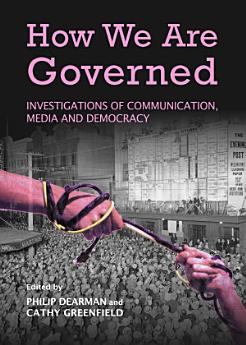How We Are Governed: Investigations of Communication, Media and Democracy
About this ebook
The book deals with questions about governing across many different domains, paying particular attention to communicative practices and technologies. Each chapter focuses on some empirical instance or instances of media–politics and media–democracy relations, on how these have been or are being exercised in shaping the limits of possible action, and on how they are being interrogated and reinvented. A persistent theme is whether the arrangements detailed in each instance can best be described as democratic, or otherwise.
Chapters focus on arguments about media regulation; the guardianship of public life; the Leveson Inquiry; Web 2.0 communication in German elections; new media and citizen participation in politics; reality TV and the formation of economic literacy; online participation in the “illiberal democracy” of Singapore; citizenship and market formation in online safety education programs; mining taxes and market populism; and public broadcasting and soft diplomacy.
About the author
Cathy Greenfield is an Associate Professor of Communication at RMIT University. She researches the role of media in the government of populations, and teaches across politics, political-economy and communication studies. She has published on media and financialization, neoliberalism, and populism, and was General Editor of Communication, Politics and Culture from 1993 to 2011.




